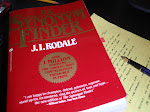
So, it’s raining again. The fog is hanging low in the valleys, and the streams are full. No fly fishing this week for sure. I’m going through pictures that I can put on the blog, and am looking at some lecture notes I’ve had in a pile on the desk, waiting for changes.
I use the questions that are asked at sessions, to generate ideas for the next talk. When I speak to poets about where to find ideas, I do have some favorite things to do that might help. One of those things is to look at family history. Not just your own, but other families that you might know or have been told about. Volumes of books have been written about the history of a particular family. Those types of ideas can feed a collection of poetry also. Remember that the person that’s speaking becomes so very important, and that person isn’t always the poet.
A woman who has done a beautiful book of poetry is Diane Gilliam Fisher. Her book Kittle Bottom takes us back to the time of the West Virginia mine wars of 1920-1921. It is a wonderful book that is written in the voices of the people who lived during that time. Diane researched the book of some years. Every moment in her book is a moment that changes the people involved, and I remember thinking back through my family history to find just such a moment. By the way, a kittle bottom is a flat-bottomed rock that hangs in the roof of a coal mine, and can fall at any time. In my part of Kentucky I always heard it called a bell rock.
I have never written a complete book on one period of time, but it is a marvelous idea. I’ll bet that if you look back over the years, you will also find a moment in time that changed your family forever. Here is a poem that I took from my family, and put myself in the mind of my Grand Father, on just such a day.
Hard Lessons
Daddy said the first day on the job you learn the rules.
If your lunch bucket gets left topside you’re out of luck
unless the next team brings it down, and if the roof starts
to fall, YOU RUN. You run like Billy-be-damned for daylight.
You don’t stop for nothing.
You run like the devil hisself is breathing that cold, damp,
black air down your neck. You run for the shaft
or the outside as fast as you can.
If you ain’t used up all your luck and you make it to daylight
then you can turn around and look who’s behind you, then
you wait for the count and see who’s not.
That day the bell-rock almost got Daddy, blowed his hat off,
he come home after the siren, stood in the door of our house
on the Big Sandy, white eyes staring from his black face.
Then he come over to me and slapped me hard.
I could see the tears making creeks on his cheeks,
and he pointed his finger at me and whispered,
”Dammit Boy, you ain’t never going in a mine.”
I use the questions that are asked at sessions, to generate ideas for the next talk. When I speak to poets about where to find ideas, I do have some favorite things to do that might help. One of those things is to look at family history. Not just your own, but other families that you might know or have been told about. Volumes of books have been written about the history of a particular family. Those types of ideas can feed a collection of poetry also. Remember that the person that’s speaking becomes so very important, and that person isn’t always the poet.
A woman who has done a beautiful book of poetry is Diane Gilliam Fisher. Her book Kittle Bottom takes us back to the time of the West Virginia mine wars of 1920-1921. It is a wonderful book that is written in the voices of the people who lived during that time. Diane researched the book of some years. Every moment in her book is a moment that changes the people involved, and I remember thinking back through my family history to find just such a moment. By the way, a kittle bottom is a flat-bottomed rock that hangs in the roof of a coal mine, and can fall at any time. In my part of Kentucky I always heard it called a bell rock.
I have never written a complete book on one period of time, but it is a marvelous idea. I’ll bet that if you look back over the years, you will also find a moment in time that changed your family forever. Here is a poem that I took from my family, and put myself in the mind of my Grand Father, on just such a day.
Hard Lessons
Daddy said the first day on the job you learn the rules.
If your lunch bucket gets left topside you’re out of luck
unless the next team brings it down, and if the roof starts
to fall, YOU RUN. You run like Billy-be-damned for daylight.
You don’t stop for nothing.
You run like the devil hisself is breathing that cold, damp,
black air down your neck. You run for the shaft
or the outside as fast as you can.
If you ain’t used up all your luck and you make it to daylight
then you can turn around and look who’s behind you, then
you wait for the count and see who’s not.
That day the bell-rock almost got Daddy, blowed his hat off,
he come home after the siren, stood in the door of our house
on the Big Sandy, white eyes staring from his black face.
Then he come over to me and slapped me hard.
I could see the tears making creeks on his cheeks,
and he pointed his finger at me and whispered,
”Dammit Boy, you ain’t never going in a mine.”







This is another of my favorite poems, Robert. Your poetry is extremely memorable. Every one grabs and won't let go.
ReplyDeleteI like the idea of a collection built on a family. My chapbook is almost like that as I write so much about my family.
Awesome poem Robert! Great idea about a whole book of history voices. I probably have enough poems about my family history to put one together, Going to look.
ReplyDelete